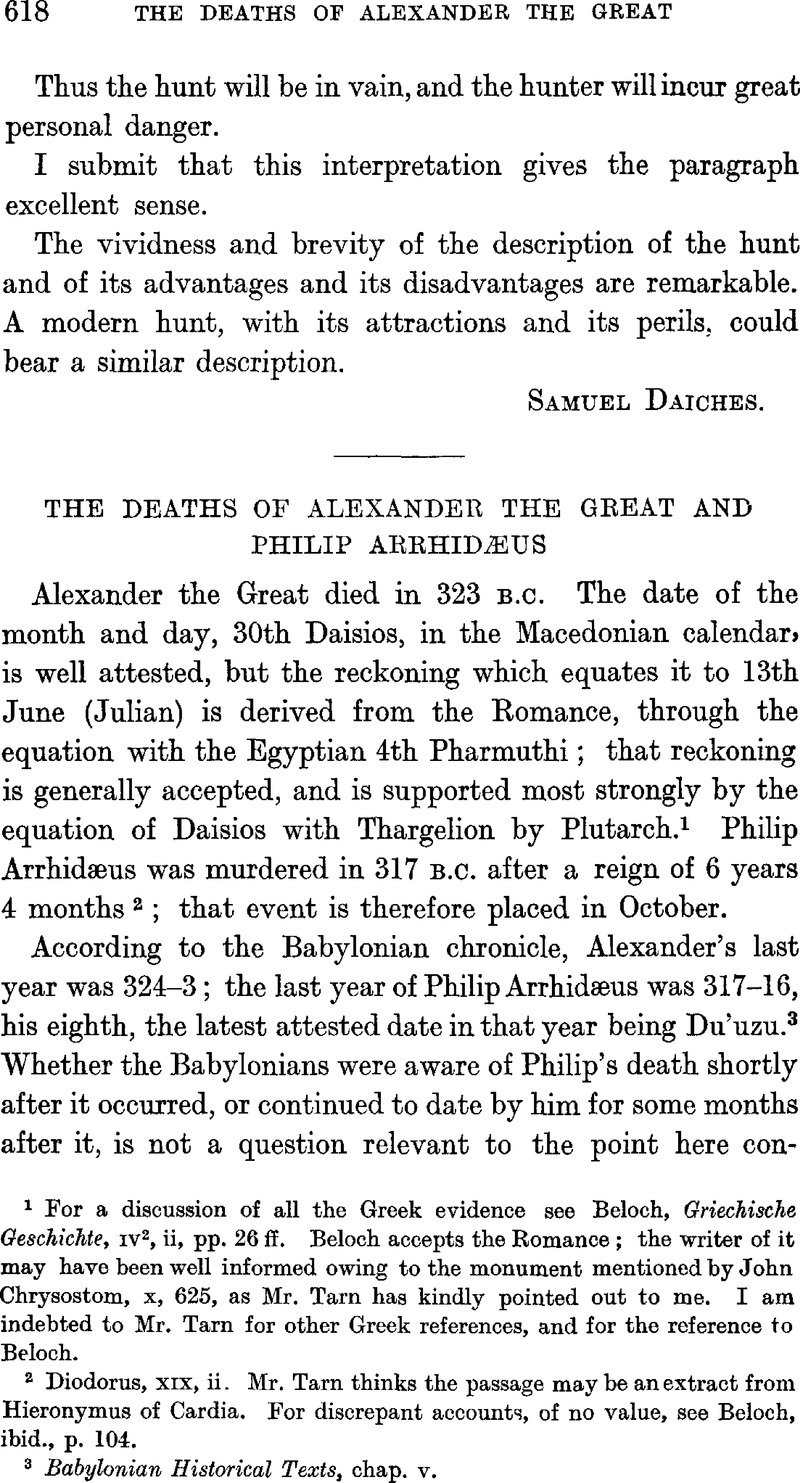No CrossRef data available.
Article contents
The Deaths of Alexander the Great and Philip Arrhidæus
Published online by Cambridge University Press: 15 March 2011
Abstract

- Type
- Miscellaneous Communications
- Information
- Copyright
- Copyright © The Royal Asiatic Society 1928
References
page 618 note 1 For a discussion of all the Greek evidence see Beloch, , Griechische Geschichte, IV2, ii, pp. 26 ff.Google Scholar Beloch accepts the Romance; the writer of it may have been well informed owing to the monument mentioned by John Chrysostom, x, 625, as Mr. Tarn has kindly pointed out to me. I am indebted to Mr. Tarn for other Greek references, and for the reference to Beloch.
page 618 note 2 Diodorus, XIX, ii. Mr. Tarn thinks the passage may be an extract from Hieronymus of Cardia. For discrepant accounts, of no value, see Beloch, ibid., p. 104.
page 618 note 3 Babylonian Historical Texts, chap. v.
page 619 note 1 On this subject see Revue d'Assyriologie, xxii, p. 185.
page 619 note 2 Kugler, , Sternkunde und Sterndienst, ii Buch, ii Teil, 2 Heft., pp. 435 ff.Google Scholar
page 620 note 1 Kaerst, Geschichte dss Hellenismus 2, ii Band, who dates Alexander's death “Frühsommer des Jahres 323”, and Philip Arrhidæus' “Herbst 317” says of the Babylonian Chronicle, “Es ergibt sich hier also kein Widerspruch mit dem griechischen Datum.” That cannot be correct, unless Babylonian Nisan 1st fell later than 13th June in 323: that conflicts with Kugler.
page 620 note 2 Diodorus, xix, 49, i.
page 620 note 3 I rely throughout on MrTarn's, account in Cambridge Ancient History, vol. viGoogle Scholar.


